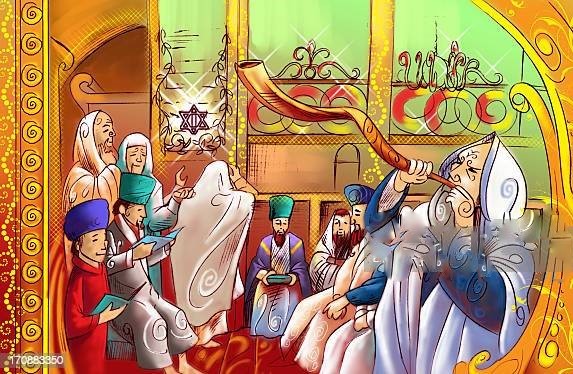SATURDAY PRAYER: GEVURAH-YESHIVAT HAVERIM יְשִׁיבָה חברים – BABYLONIAN TALMUD p124

READING: BETWEEN MIDNIGHT AND DAWN OF SATURDAY
MISHNA VII.: The cripple may go out with his wooden leg; such is the decree of R. Meir, but
R. Jossi prohibits it. If the wooden leg has a receptacle for pads, it is subject to
defilement. Crutches are subject to defilement by being sat or trodden upon; 1 but one may go
out with them on Sabbath and enter the outer court (of the Temple). The chair and crutches of a
paralytic are subject to defilement, and one must not go out with them on the Sabbath nor enter
the outer court (of the Temple). Stilts are not subject to defilement, but nevertheless one must
not go out with them on Sabbath.
GEMARA: Rabha said to R. Na’hman: How are we to accept the teaching of the Mishna? Did
R. Meir permit the cripple to go out with a wooden leg on the Sabbath and R. Jossi prohibit his
doing so, or vice versa? Answered R. Na’hman: “I know not.” “And how shall the Halakha
prevail?” Answered R. Na’hman again: “I know not.” It was taught: Samuel and also R. Huna
begin the Mishna: “A cripple shall not,” etc. And R. Joseph said: “As both sages read the
Mishna so, we shall do the same.” Rabha b. Shira, however, opposed: “Was he not aware that
when R. Hanon b. Rabha taught so to Hyya, the son of Rabh, the father showed him with the
movement of his hands to change the names? In reality Samuel himself has also receded from
the former teaching, and has corrected: “A cripple may go out,” so is the decree of R. Meir.
[Hamoth, 101a.]
“And must not enter the outer court,” etc. A Tana taught before R. Johanan that one may go in
with them in the outer court. Said R. Johanan to him: I teach that a woman may perform the
“Chalitza” 2 with them (hence they are considered shoes), and you say he may go in with them
to the outer court. Go and teach the contrary.
MISHNA VIII.: Boys may go out with bands and princes with golden belts; so may every one
else, but the sages adduce their instances from existing customs.
GEMARA: What kinds of bands? Said Ada Mari in the name of R. Na’hman b. Baruch, who
said in the name of R. Ashi b. Abhin, quoting R. Jehudah: “Wreaths of Puah roots.” Said Abayi:
“My mother told me that three of such wreaths give relief (in sickness), five of them produce a
complete cure, and seven of them are even proof against witchcraft.”
Said R. Aha b. Jacob: “And this only if they (the wreaths)
have never seen sun, moon, or rain; never heard a hammer fall or a cock crow or the fall of
footsteps.”
 HALF REDUCTION OF FLOW IN THE INNER LEFT COURT FOR GREATER DISCLOSURE OF THE UPPER FORCE
HALF REDUCTION OF FLOW IN THE INNER LEFT COURT FOR GREATER DISCLOSURE OF THE UPPER FORCE WEDNESDAY PRAYER: KETER-SHACHARIT שַחֲרִית MORNING PRAYER
WEDNESDAY PRAYER: KETER-SHACHARIT שַחֲרִית MORNING PRAYER WEDNESDAY PRAYER: KETER-TIKKUN CHATZOT תקון חצות-TIKKUN RACHEL & TIKKUN LEAH
WEDNESDAY PRAYER: KETER-TIKKUN CHATZOT תקון חצות-TIKKUN RACHEL & TIKKUN LEAH